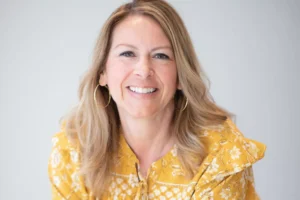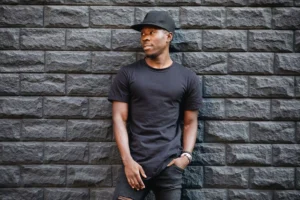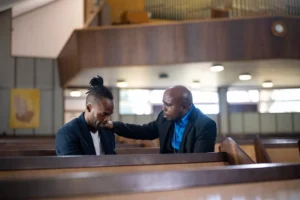I am the oldest.
At 11, it seems like I’ve been waking up to keen anticipation and being disappointed, every single day for forever, rather than just a couple of weeks. I prowl the house on silent feet, encountering sleeping sisters, closed doors, and quiet. Once I resign myself to the fact that this, too, is just another summer morning, I curl up in my chair and begin to read.
Suddenly, I hear a newborn baby’s cry from downstairs: my brother has arrived. By the time he is half an hour old, I hold him in my arms.
Whatever means God uses to shape the character of other folks — roommates, churchmates, spouses, or children — when it comes to molding me, He’s made the most of all seven of my siblings.
I can’t believe it: I just yelled at my little brother, again. How hard can it be to teach math to a 9-year-old? Very. Especially when my motivational vocabulary consists mostly of “Let’s work hard, and get it over with,” and he is allergic to numbers.
I used to be the easy-going sister, back when I had the freedom to fade out of frustrating situations with my siblings. But this time, somehow, we have to cooperate well enough to conquer this math book. Until then, we’re stuck with each other.
My younger brothers and sisters have been the source of some of my deepest frustration, and some of my greatest joy and transformation.
It’s embarrassing. Some people — take my younger sisters, for example — have been driving standard for years. How hard could it be to get me to use a manual shift? Very. Especially when my own motivational vocabulary consists mostly of “you should have mastered this already,” and I am allergic to machinery.
Fortunately, my brother knows just what is going on inside the gear box. And no matter how badly I want to postpone this lesson, he sticks with me until I get into the car, and we conquer it together.
Few people are born into a large family, but there’s another way to experience the sibling bond, one that has nothing to do with blood ties. The definition of “brothers” was already broad in the Old Testament world, but Jesus stretched His family circle beyond extended family and fellow countrymen to include anyone who does the will of God. Now not one of us is an only child.
Even when I lived overseas without my family, I did not have to do without siblings. I had classmates instead: Anna, who fed me, Douglas, who prayed for me, Steve, who made me laugh, and Sarah, who saw into my heart.
But this summer, I am home. And with six adult siblings in and out of the same house, it’s a bit like the body of Christ in microcosm: Every joint supplies. One sister can’t stop buying good food. Another one can’t stop cooking it. Still another sister is our resident fashion advisor and musician. One brother provides the strong shoulder. Another only tolerates hugs, but is always good for technical support.
We lead six very different lives, but we know just where to come for company. Sometimes we read aloud, sprawled all over the living room. Sometimes we split into pairs and go off for a walk, usually an excuse for liberal amounts of listening. We rejoice with the excited, and pray for the anxious. We confront and encourage, and when asked, we hold each other accountable for movie choices, internet use, eating habits, daydreams and devotions.
This kind of mutual support and responsibility sounds a bit foreign in today’s culture. But then, it was sounding strange way back in the book of Genesis.
Who is his keeper?
Perhaps Cain is the middle of plowing his beloved soil when God interrupts. “Where is Abel your brother?” He asks.
I can almost see Cain shrug, and pause to brush a little dirt off his hands before he replies casually, “Am I my brother’s keeper?”Genesis 4:9 (ESV)
In Hebrew, the word for “keeper” includes the thoughts of hedging about, guarding, observing, preserving, watching, and attending to someone. Cain’s problem wasn’t a lack of attentiveness: He knew perfectly well where Abel was. But thanks to a serious case of jealousy, Cain had watched over his brother — for harm.
What about me? Am I my brother’s keeper? And if so, what does that look like from a biblical perspective? Since God answered Cain’s real question, rather than the one that flew out of his mouth, we can’t get a direct answer there. But as the Biblical record continues to unfold, we can pick up a lot of clues about His hopes and dreams for the sibling relationship.
A few chapters after Cain’s story, God mentions that He will require innocent blood at the hand of the murdered man’s brother. Like a modern district attorney, close relatives took up the responsibility to seek out justice for someone who could no longer speak for himself. There were disastrous results, however, when brotherly affection became an excuse to take the law into one’s own hands.
Remember the story of Ruth and Boaz? When God created the concept of the kinsman redeemer, He showed ways in which a man could be his brother’s keeper: by relieving his poverty, buying him out of servitude, or caring for his widow. Solomon observes that work is more satisfying when you know it will benefit a son or brother. In fact a brother, he says, “is born for adversity.”
If you read that verse as early proof that siblings are a source of adversity (rather than an asset in hard times), I wouldn’t blame you. Sibling conflict is a real and very up-to-date issue at any age. I don’t have to look far for an example in my own life.
It seems inevitable. Every time we head to prayer meeting, my sister and I disagree about the directions. The last time we lived together, we were both fine with the fact that she is decidedly the navigator of the two. Now, emboldened by months of fending for myself, I begin to feel that my slim 5 percent of our combined navigational ability might have increased — just slightly, of course. Perhaps, just this once, I actually know the better route. I never consult the map to verify my theory, I just suggest it, week after week. And week after week, she still wants to go her way.
Who was right? I’m still not sure. But I know one thing: There’s a better way to deal with this. When I’m tempted to nag, I need the book of Proverbs: “Whoever covers an offense seeks love, but he who repeats a matter separates close friends.”Proverbs 17:9. See also Proverbs 10:12, 1 Peter 4:8 When I’m prone to simmering resentment, I can turn to the Leviticus remedy: “You shall not hate your brother in your heart, but you shall reason frankly with your neighbor, lest you incur sin because of him.”Leviticus 19:17
But which do I do when? As I was writing this article, my dad sent me a note. “Before you correct, you pray and check your motives,” he wrote. “Do you need to confront him on this issue? And if so is your motive actually to help the situation, or to simply straighten him out and make him feel bad?” And most tellingly, he asks, “Am I on my brother’s side? Or am I only on my side?”
This writing business can be very convicting.
It’s also refreshing. One of my favorite parts of this study is focusing on the real-life sibling relationships in the Bible. There’s Laban, who helps his sister Rebekah marry well. There’s Jacob, who learns the hard way that his heart’s desire comes directly from God, and doesn’t have to be snatched from his brother Esau. There’s Joseph, whose brothers are only too glad to sell him into exile — where he not only saves the whole clan from starvation, but has the grace to attribute their heartless actions to the mercy and foreknowledge of God. There’s also Moses and Aaron: the stammering younger brother who runs the show, and the articulate older brother who sinks his gifts in a family team that’s completely at God’s miracle-working disposal.
When He sent Jesus, God showed us whole new ways in which we can be our brothers’ keepers. At the top of the list is genuine reconciliation. Though perfectly aware that “a brother offended is more unyielding than a strong city,”Proverbs 18:19 Jesus offered a practical, step-by-step solution. First, deal with your own faults. And make sure you haven’t gotten provoked for no real reason.ESV footnote for Matthew 5:22: “Some manuscripts insert without cause.” But if he really has come up short of God’s standards, confront him. If he doesn’t respond, bring in others who are on his side. And when he changes his mind, forgive him from your heart, just as God has forgiven you.
But what if my brother doesn’t respond? There’s no heartbreak quite like watching a loved one who doesn’t yet know or fully comprehend God’s love. I can tell him about that love, show him that love, and make sure I’m doing nothing that will trip him up on the way towards it. And always, I can ask God to grant him heart-deep life: That’s a prayer He’s delighted to answer!
But no matter how much I love my brother, there are some things I cannot do. After all, I am not:
- My brother. I cannot make his choices for him.
- My brother’s parent. I don’t bear the same level of responsibility as his father and mother do.
- My brother’s savior. I cannot change his heart or meet his spiritual needs.
God is the source of the change my brother needs, and the change I long for in myself. He is acutely aware of our shortcomings, unswervingly in love with us, and eminently capable of transforming us into His likeness. When He is invited to work, the relationships that cause me the most frustration can become the source of my greatest joy.
I know these things, but sometimes I need to be reminded: Jesus is the ultimate older sibling. He is the friend who sticks even closer than a brother.
And we are in His hands.
Copyright 2009 Elisabeth Adams. All rights reserved. International copyright secured.









